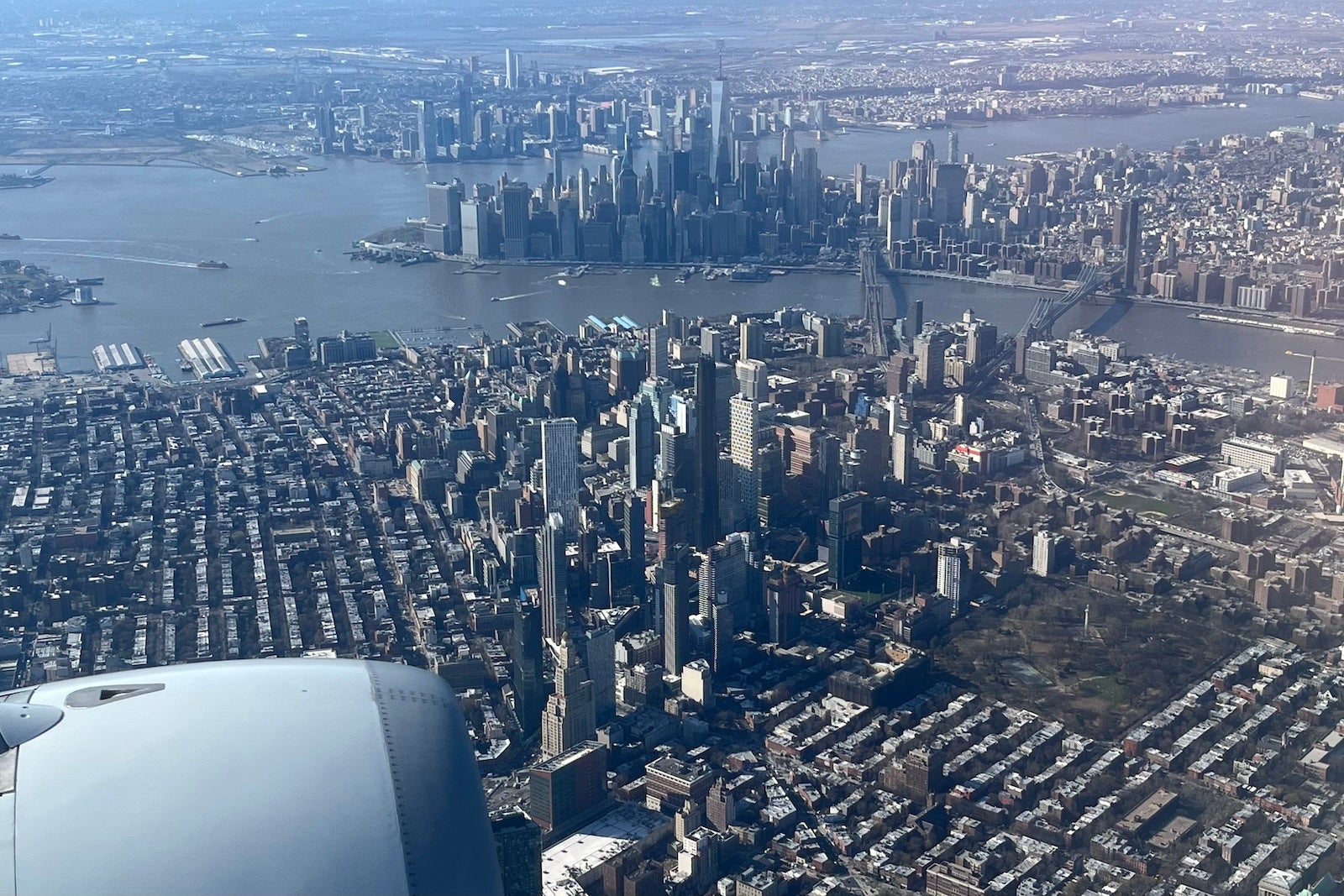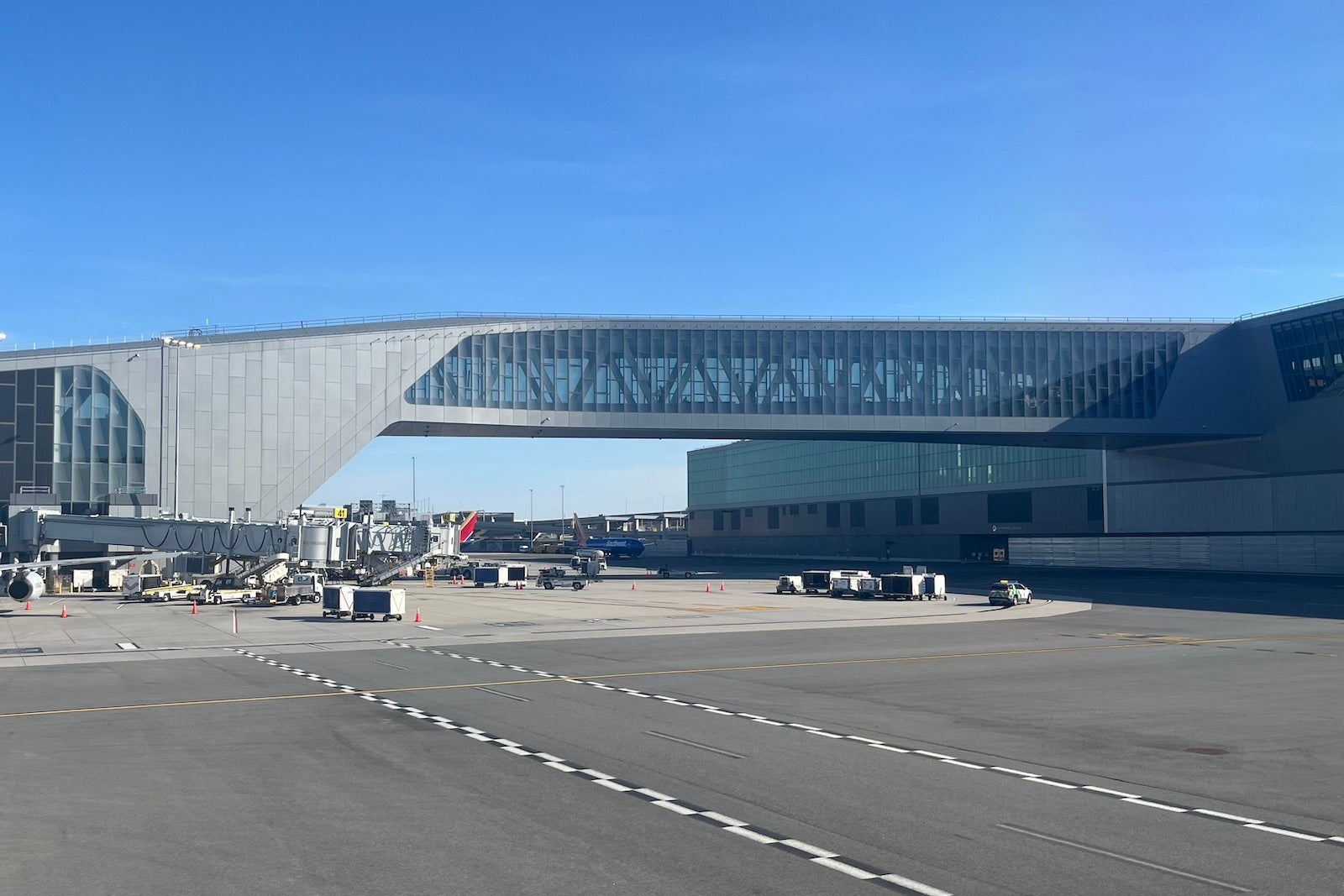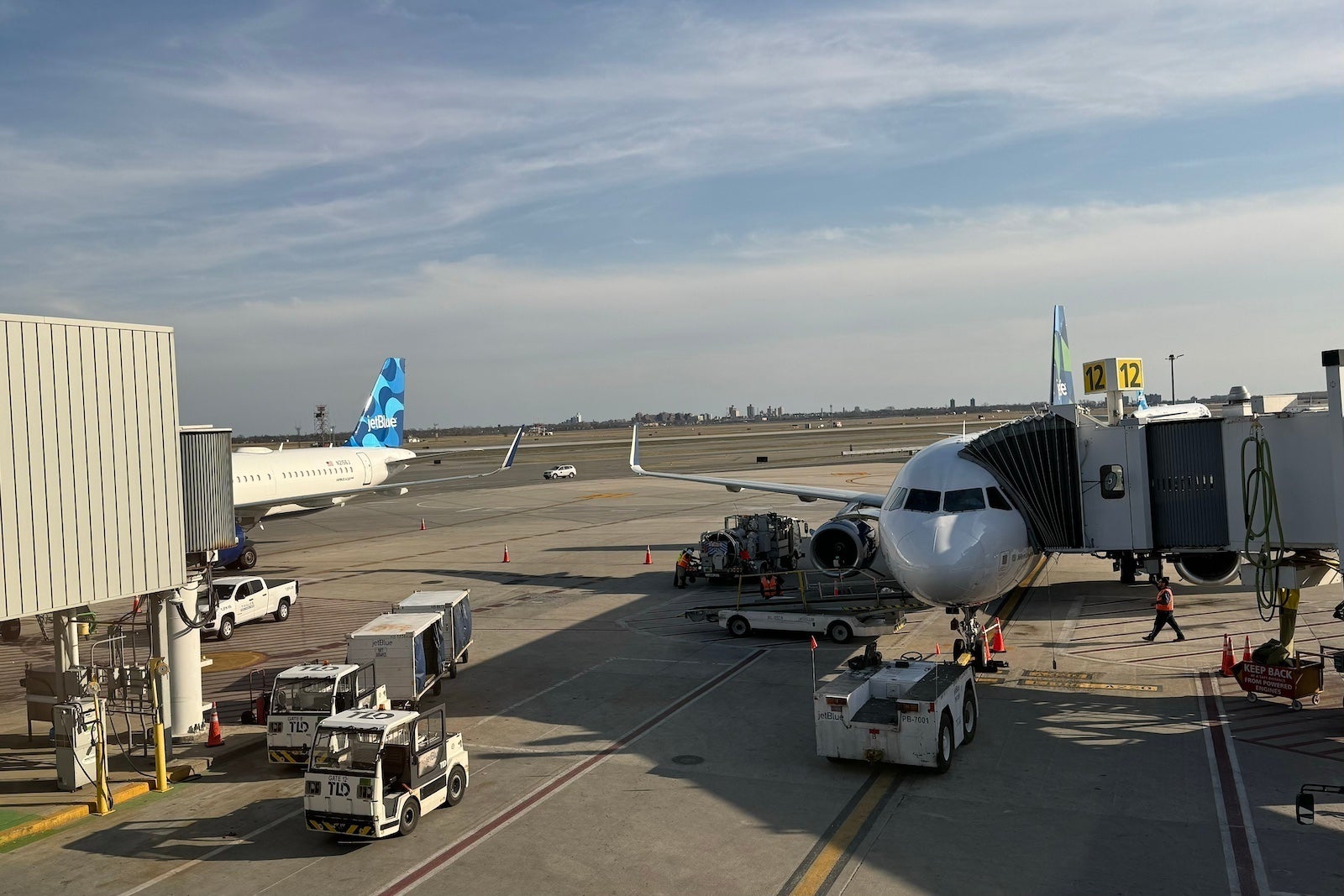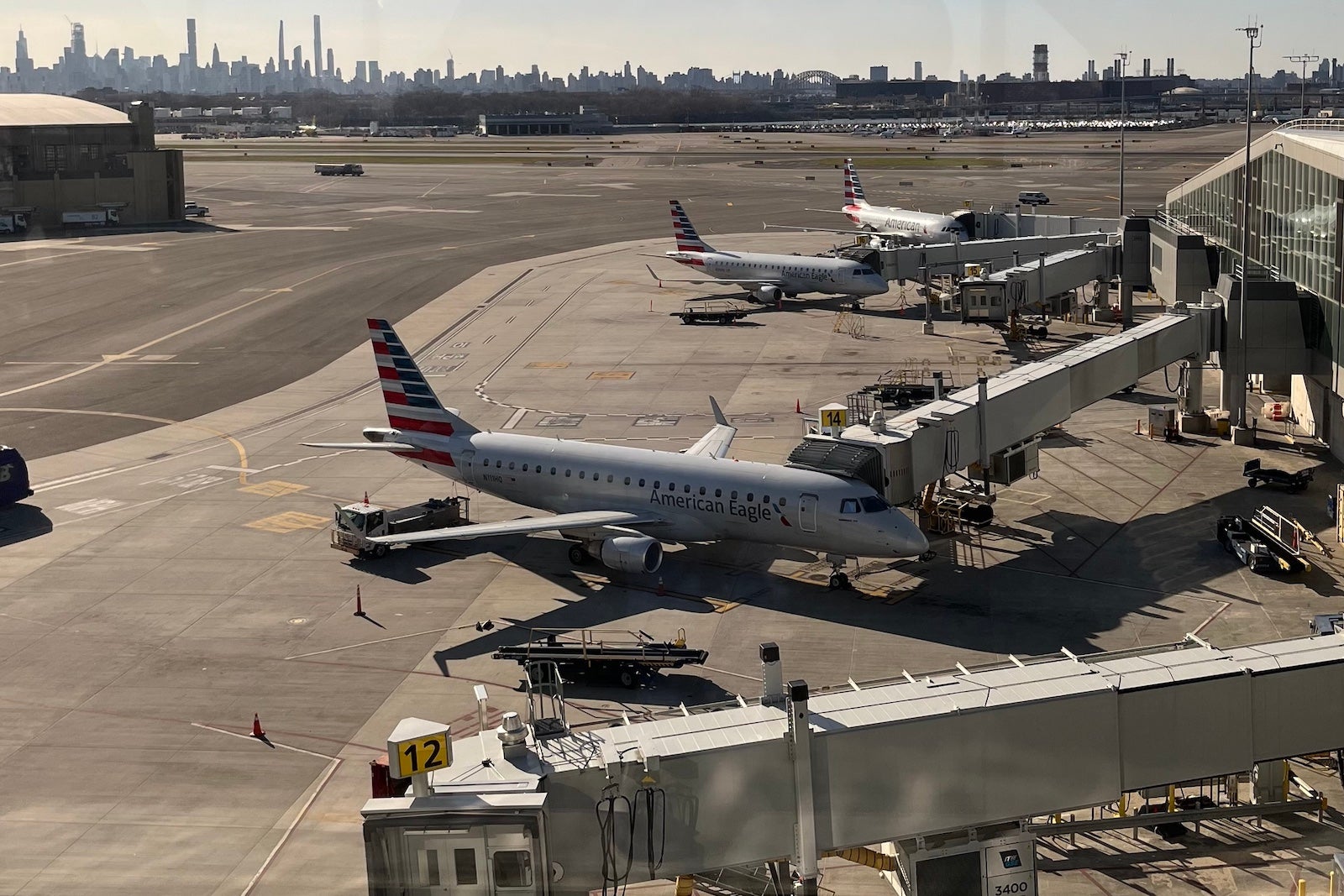Airlines ask FAA to extend New York slot waivers through October 2025
Airlines want permission to operate fewer flights to New York without penalty through most of 2025; they’re citing a continued shortage of air traffic controllers that carriers don’t expect will sufficiently improve within the next 18 months.
Last week, Airlines for America — a lobbying group for the largest U.S. carriers — requested that the Federal Aviation Administration extend its relaxed scheduling rules for airlines in New York through at least October 2025, according to a letter viewed by TPG.
The FAA is reviewing the request, a spokesperson told TPG Friday.
New York and DC ‘slot’ rules
Last spring, the FAA first allowed airlines to reduce capacity — without penalty — in the New York region at John F. Kennedy International Airport (JFK), LaGuardia Airport (LGA) and Newark Liberty International Airport (EWR).
Slots rules, explained: The little-understood government rule that allows airlines to dominate certain airports
This added flexibility takes some of the bite out of use-it-or-lose-it rules around the “slots” the FAA employs at JFK and LaGuardia. Essentially, one slot coveys the right for an airline to operate one takeoff or one landing. Current rules mandate airlines use their slots for a certain amount of the year at those airports, or they risk forfeiting them. This is meant to prevent airlines from hoarding slots they don’t intend to use as a way of keeping rival airlines out.
Similar rules govern Ronald Reagan Washington National Airport (DCA).
The FAA also closely meters takeoffs and landings at Newark.
New York ATC constraints
Staffing levels at the agency’s critical New York air traffic control facility are lagging far behind targets; so, in 2023, the agency began temporarily allowing airlines to voluntarily reduce their schedules by up to 10% without the risk of forfeiting future flights.

Daily Newsletter
Reward your inbox with the TPG Daily newsletter
Join over 700,000 readers for breaking news, in-depth guides and exclusive deals from TPG’s experts
Want more airline-specific news? Sign up for TPG’s free biweekly Aviation newsletter.
The current waivers also allow airlines to reduce schedules between DCA and New York.
The agency’s goal: to lessen the burden on the region’s packed airspace and on the air traffic controllers who manage it.
Airlines widely praised the FAA’s limited, conditional slot waivers, which the agency initially deployed for the summer 2023 travel season and later extended. The move has helped fuel a “noticeably better travel experience,” Airlines for America said, compared with mass disruptions that plagued air travel in 2022.
As of now, those waivers are set to last through October 2024.
Concerns for 2025 and beyond
Airlines are now planning their 2025 schedules, and they fear air traffic control staffing will not improve meaningfully over the next 18 months.
“The underlying conditions creating the need for a waiver will still exist as staffing shortages persist,” read the April 3 letter from the airlines.
With so many major airline hubs in New York, disruptions there can trigger national disruptions and “ripple across the entire system,” airlines noted.
Staffing shortages a lingering problem
The FAA’s air traffic control staffing shortages date back years. But, they accelerated over the last decade under the collective effects of sequestration, multiple government shutdowns and the coronavirus pandemic.
Despite the FAA upping its hiring goals for new controllers, February staffing at the critical New York air traffic control facility sat at just 59% of the agency’s target, the airlines pointed out in their recent letter.
That means fewer staff on hand to manage the thousands of aircraft in the region, which gets especially challenging when an afternoon thunderstorm or dense fog hits, fueling ground stops and long waits on the taxiways.
“Absent the [slot] waiver, I think we’d have, as an industry, some real challenges in New York,” Delta Air Lines executive vice president for external affairs Peter Carter said on the company’s first-quarter earnings call Wednesday. “It’s still an incredibly challenging environment.”
Particularly in New York, airlines have been operating fewer — but larger — aircraft to accommodate demand but navigate the constraints.
Last summer, airlines flew from the New York region’s three major airports with 1.2% more seats than in 2019 while operating 3.1% fewer flights, according to data from aviation analytics firm Cirium.
Swift decision requested
In its letter, Airlines for America asked the FAA to decide by May 1 whether it will extend its temporary, conditional slot waivers in New York and at Reagan.
Related reading:










